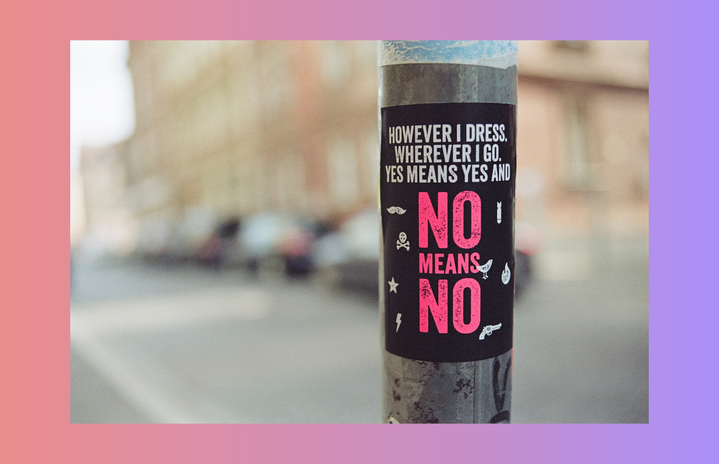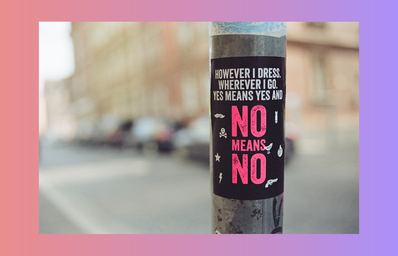The content of this article is sensitive and may trigger some viewers. The following contains discussions of sexual assault/related topics. Viewer discretion is advised if you would like to proceed.
April is Sexual Assault Awareness Month so I wanted to take this opportunity to give some quick tips on how to support those around you who have experienced sexual violence.
First, know that any form of sexual violence can be a traumatic and complex experience so everyone will respond differently. Just because someone doesn’t “seem like” they had something happen to them doesn’t mean it didn’t. We know that the vast majority of sexual assaults go unreported, so if someone has chosen to share that information with you, believe them.
Listen and Believe
The first step is always to listen and believe them. I know it can be uncomfortable and sad to hear this has happened to someone you care about and it can be difficult to find the right thing to say to them. Here are 3 things to start you in the right direction:
“I believe you”
“It’s not your fault”
“I’m sorry this happened, how can I help?”
These 3 simple statements can mean the world to someone going through a difficult experience. Know that some survivors might not believe you when you say things like “It’s not your fault”. That’s okay, you don’t need to try to convince them (you probably won’t be able to). What matters is that you mean it, because they’ll pick up on that.
Provide Empathy not Advise
When someone is in pain and comes to us with a problem, we often want to try to solve it by giving advice and opinions. If someone shares this information they are probably looking for empathy and support, rather than advice. Individuals who have experienced sexual violence have already had their choice taken from them so it’s important that we help them regain that autonomy by simply supporting them, rather than giving unsolicited advice.
If they do ask for your input on what they should do, be sure to give them options so they can choose what they believe is best for them. It’s okay to want to be helpful and if the person asks for your assistance with something absolutely feel free to help them, just make sure you’re doing what they want and just not what you think is best.
Be Informed
Know that sexual violence can happen to anyone. Men, women, children, the elderly, married individuals, and LGBT+ people can all experience sexual violence.
Familiarize yourself with the effects of victim blaming and challenge your preconceived notions about domestic and sexual violence. “Why did you stay?”; “I would’ve hit back”, and “Try to be more careful next time” are all victim blaming sentiments. This is a good website that addresses some of these commonly held beliefs: https://stoprelationshipabuse.org/educated/relationship-abuse-faqs/
Keep a few resources that support survivors in your notes app. I recommend a combination of local and national resources. On the national level, the Rape, Abuse & Incest National Network (RAINN) has a 24/7 hotline that can support survivors and help them find more services in their area. The RAINN Hotline number is 800.656.HOPE (4673)
If you are in college, every school is required to abide by Title IX which (among other things) requires schools to address sexual violence complaints. You can learn more here: Know Your Rights: Title IX Prohibits Sexual Harassment and Sexual Violence Where You Go to School.
At St. Ambrose University, the Sexual Assault Awareness Team (SAAT) offers free confidential peer advocacy services 24/7. SAAT Advocates are trained to respond to instances of domestic violence and sexual assault that are experienced by SAU students. All services are completely confidential and advocates are available on and off campus. Please email saat@sau.edu for more information. If you are not a student at St. Ambrose, look to see if your school has a comparable group. If not, consider starting one!
Disclaimer: I am a trained survivor advocate in Illinois and Iowa. All information in this article is based on my personal training and experience working in this area. Please speak to a trained professional near you for further information.
SEXUAL ASSAULT: If you or someone you know has been sexually assaulted, you can call the National Sexual Assault Telephone Hotline at 800-656-HOPE (4673) or visit hotline.rainn.org.

